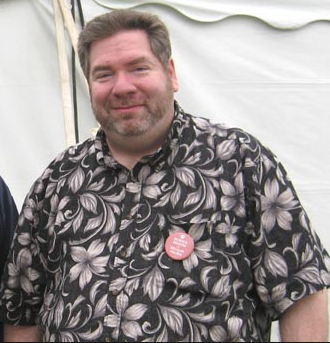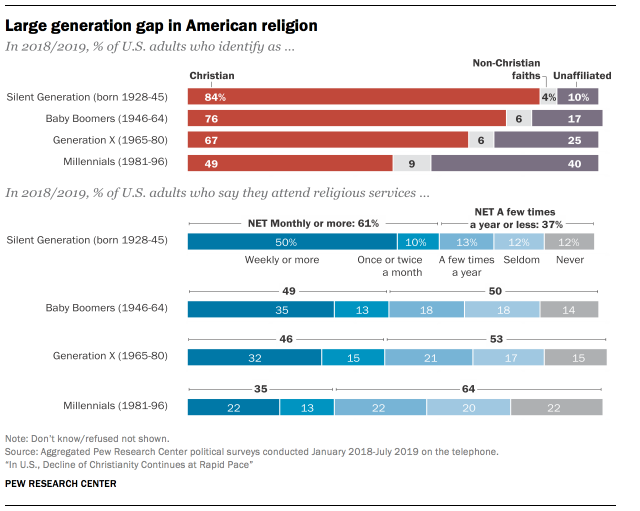 |
| Chris Stedman/Via Center for Inquiry |
If you’re not familiar with that name, it appears to have
been something largely coined by Chris Stedman, now the recently published
author of a book by that name, which is what this blog post is all about.
First, some personal identification.
Regular readers of this blog, or at least the
part of it that deals with religion, philosophy and metaphysics, know that I
normally don’t have a lot of use for the New Atheist, or Gnu Atheist,
“movement.” I consider them too confrontational, for one thing. I consider them
too … fundamentalist, to be wry, secondly. Third, unlike them, I have no desire
to “evangelize” religious America, let alone conduct an intellectual
browbeating quasi-jihad.
Well, that’s where Chris generally comes from.
That said, is Faithiest the book about branding
Faithiest the idea as well as telling Stedman’s own quite interesting journey,
which includes his gay sexuality and coming terms with that while spending part
of his time growing up in a conservative evangelical church?
Well, two different reviews have two different
takes.
Here’s the heart of Loxton’s review:
Like his other writing
and interfaith work, Stedman’s book calls powerfully for a more compassionate,
more nuanced, more accepting dialogue between people of faith and people who
have none. Given the strong anti-theistic sentiments common currently in
movement atheism and the atheist blogosphere, this has not too surprisingly
made Stedman a somewhat controversial figure in atheist circles. Some place him
as part of an established narrative—a proposed distinction between atheist “firebrands
and diplomats.”
“We need both,”
it is often said, “firebrands and diplomats.” Working together—the soft sell
and the hard sell, the good cop and the bad—these complementary approaches may
do more to bring down religion than either prong of the attack may accomplish
on its own. “We’re all part of the same movement,” say these voices. “We all
want the same thing.”
But that’s just
it. We don’t all want the same thing.
The radical
function of Stedman’s Faitheist is to underline that rarely-stated truth. Atheism
is actually not a duopoly of firebrands and diplomats. These two types of
evangelists no more describe “both kinds” of atheist than “country and western”
describes “both kinds” of music.
Stedman
explicitly rejects “the demise of religion” as a goal he does not share, and
rejects the firebrands versus diplomats dichotomy as well. “I believe how pushy
should we be? is the wrong question,” he writes. The better question is how do
we make the world a better place?
I would agree with all of that, with one
notable exception that is to Loxton’s one claim.
I’m not any kind of atheist evangelist myself,
whether a firebrand or a diplomat. Now, if Stedman is (I don’t know about
Loxton) then I part company with him there, and if “Faitheist” is part of a
soft sell version of atheist evangelism, no.
Instead, like Garbo, respect my boundaries,
both as an individual and as a member of society (no creationism in public
schools, etc.) and I otherwise want to be left alone, and leave you alone, too.
Meanwhile, Simon Davis, guest-blogging at
FreethoughtBlogs, the ground zero of Gnu Atheist bloggers, has a different take
— one more critical, but not stridently so.
Davis first says he thinks Stedman
overdramatized his encounter with an atheist group in Chicago.
The panelists I spoke to disagreed with Stedman
that “Throughout the program, religion — and religious people — were roundly
mocked, decried, and denied.” (p. 2) The panel format was chosen precisely so
the discussion wouldn’t be one-sided, though there was one panelist who was
vocal in her position that local humanist groups (of which one of the panelists
was a member) were too supportive of religion. A month later, Stedman also
hosted one of the panelists on the Chicago Public Radio show he was helping to
produce at the time with IFYC, which seems like an odd thing for him to do if
he felt this person would mock, decry, and deny the religious.
Interesting, to say the least.
Second, Davis points out a little bit of
elision Stedman does of a famous Carl Sagan quote, while noting that the
version he has, or similar, has floated around the Internet.
Ditto on this Sartre quote Stedman uses:
“That God does not exist, I cannot deny. That
my whole being cries out for God, I cannot forget.”
Several commenters, including one
French-fluent, say Sartre never said this. In fact, one calls it Stedman’s
wish-fulfillment:
I think this is a key to Stedman’s thinking. My
armchair psychoanalysis is he has a god-shaped hole in his psyche which he’d
like to fill but can’t because he intellectually rejects gods. Religion is
emotionally satisfying for him but intellectually without basis. Hence his
interfaith work and his criticisms of anti-theist atheists like PZ Myers and
the other gnu atheists. We reject the totality of religion while he embraces
the emotional (and possibly the social) aspects. He likes religion (except for
the god parts) so he’s angry at those who don’t like it.
I think that’s over the top. I like certain
things about religion, and, in non-fundamentalist incarnations, don’t come
close to hating it.
At the same time, do I wish that at least some
of the metaphysical promises, or even the psychological ones, of religion
actually were true? Yes, yes, and yes.
An atheist who claims with a straight face not
to have any such yearnings is a Gnu Atheist squared.
Anyway, what spurred Davis was this post by
Stedman at Salon, an excerpt from the book.
Read it for yourself.
The one other important part, related to Davis,
is where the word “faitheist” comes from, and per this post here, whether there
is some “branding” by Stedman afoot.
My final takeaway from Davis is that Stedman,
according to him, doesn’t actually personalize the book as much as he could.
For example, Davis said he’d like to hear more of how Paul Kurtz influenced
him.
Giving some ammunition in support of Davis and
commenters there that Stedman is in a journey that is still very much in media
res?
First, his own history. Per Davis, from the
book:
In chapters 2-6, Stedman writes about growing
up poor and attending a Unitarian Univeralist church before joining an
Evangelical congregation in middle school right around the time that he
realizes that he is gay. … After his mother discovers that he is gay, he begins
to become a part of a more liberal Evangelical community that is welcoming of
LGBTQ people.
He then attends
a Augsburg College–a Lutheran school in Minneapolis–with the purpose of
becoming a minister. It is in his first year there that he arrives at atheism “through
intellectual and personal consideration.” (p. 84). This leads him to spend the
rest of his time as an undergraduate with animosity towards religion, which has
largely subsided by the time he graduates. After college he spends the winter
in northern Minnesota town of Bemidji “working with Lutheran Social Services as
a direct service professional for adults with learning disabilities” (p.108).
He says it is during this time that “Though I didn’t have the words for it at
the time, I was beginning to cultivate my Humanistic worldview.” (p. 109).
Reading Eboo Patel’s Acts of Faith is what convinces him to do interfaith work
and move to Chicago where IFYC is based while attending Meadville Lombard–a
Unitarian seminary.
Interestingly,
even though he has both an undergraduate and a Master’s degrees from religious
institutions where he interacts with diverse groups of people and studies the
teachings of numerous religions, those teachings aren’t directly reflected in
the memoir.
That is quite a journey, and as with humanism,
if Davis is write, the book is poorer indeed for Stedman not showing more of
the influences on him.
It also, again, could be an eyebrow-raiser as
to the purposes of the book.
Second , the book is only 208 pages.
Third, Stedman’s a … young pup! He was only 24
when he wrote the book.
Fourth, we have the example, recently, of a
Harvard student, one who had gained some prominence among young atheists,
deciding she was no longer an atheist and instead becoming some sort of fideist
Catholic.
Now, I’ll admit that, like with John Loftus, I
may have a twinge or two of jealousy over Stedman. I’ll also admit that I’ve
not read the book yet, but that I think Chris is a decent guy personally, and
that he’s a Facebook friend.
That all said, because of my three caveats
above, I’ll say that Davis probably, at least, isn’t all wrong in his review.
Stedman may be dramatizing his journey a bit. And, there may be some “branding”
behind that move.
I mean, his brief mini-bio on Amazon hints at
why he might want to do that:
Chris Stedman is the Assistant Humanist
Chaplain at Harvard University, the emeritus managing director of State of
Formation at the Journal of Inter-Religious Dialogue, and the founder of the
first blog dedicated to exploring atheist-interfaith engagement, NonProphet
Status. Stedman writes for the Huffington Post, the Washington Post’s On Faith blog,
and Religion Dispatches. He lives in Boston.
Let’s be honest. That’s heady stuff for a
24-year-old who might well be more ambitious than he lets on in polite company.
Especially when he was writing for the On Faith blog back at least at 2009.
For more about his thought in general, here’s
Stedman’s blog.
For the book’s website, including a
biographical page, go here. There’s more biography at his CFI page.
Anyway, I am, as of this time, still of
multiple mindsets about the book. It sounds interesting. But, while Davis cuts
too hard, maybe it’s not as deep as it could be. And, per myself, maybe it is a
“branding” book.








